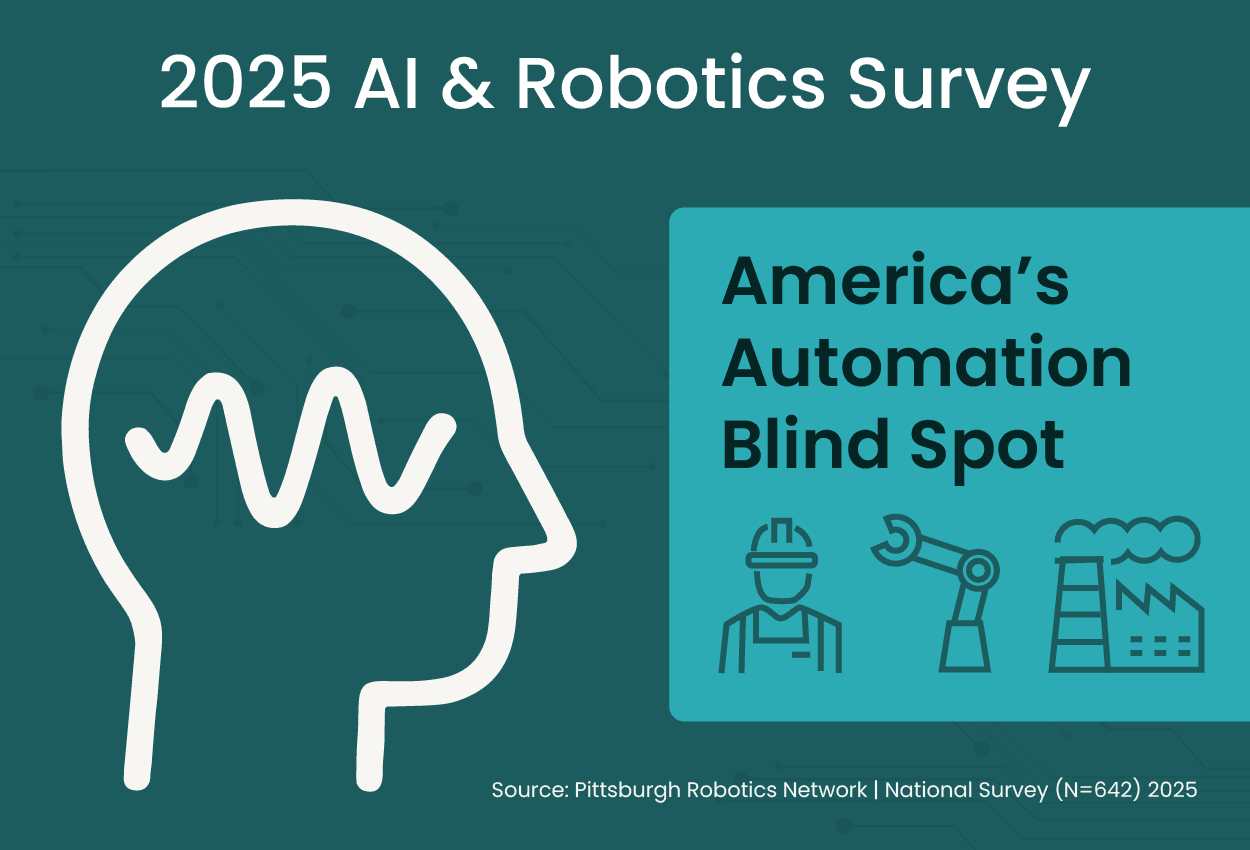
Americans Express Cautious Optimism About Robotics Impact, Survey Shows
TL;DR
The Pittsburgh Robotics Network survey reveals 62% prefer U.S.-made robotics, creating market advantages for domestic manufacturers and reshoring opportunities.
The Pittsburgh Robotics Network's 2025 survey of 642 Americans shows divided sentiment on robotics impact with only 12% fearing personal job displacement.
Robotics applications in disaster response and hazardous environments promise safer working conditions and improved emergency assistance for communities nationwide.
Americans are most excited about robotics advancing space exploration while remaining cautious about self-driving cars and military applications.
The Pittsburgh Robotics Network released its 2025 AI & Robotics Sentiment Survey, providing comprehensive insights into American attitudes toward rapidly evolving robotics and artificial intelligence technologies. The findings reveal a nation cautiously optimistic about robotics' broader societal benefits while displaying significant blind spots regarding personal employment implications.
Americans appear nearly evenly divided on whether robotics and AI will ultimately represent a net positive or negative force in society. However, this balanced outlook masks notable areas of optimism, particularly regarding economic and manufacturing impacts. A strong plurality of respondents (44%) expects robotics to drive more manufacturing back to the United States, suggesting public confidence in technology's potential to revitalize domestic production capabilities. This manufacturing optimism is complemented by clear consumer preferences, with nearly two-thirds (62%) indicating they are more likely to use robotics created domestically.
The survey reveals a striking disconnect between general concerns about job displacement and personal risk assessment. While job loss ranks among top public concerns regarding AI advancement, only 12% of respondents believe their own employment faces displacement risk. This perception gap raises important questions about workforce preparedness, particularly given economic forecasts suggesting more widespread occupational transformation. Jennifer Apicella, Executive Director of the Pittsburgh Robotics Network, noted that this represents a significant opportunity for industry and training partners to collaborate on closing the perception gap through clear upskilling pathways.
Public enthusiasm for robotics applications varies considerably across different use cases. Respondents express greatest excitement for robotics deployment in hazardous environments, disaster response scenarios, and space exploration missions. These high-risk, high-reward applications appear to resonate most strongly with the American public's vision for robotic assistance. Conversely, concerns remain more pronounced around applications in autonomous vehicles, military operations, and law enforcement contexts, indicating nuanced public acceptance depending on implementation domains.
Economic implications present another area of mixed public sentiment. A majority (53%) believe robotics could exert downward pressure on household incomes, suggesting concerns about wage stagnation or compression. However, those with higher education levels and income brackets demonstrate greater likelihood of expecting personal economic benefits, pointing to potential inequality in how different demographic groups anticipate sharing in robotics-driven prosperity.
The survey methodology involved nationally representative online surveys conducted in March 2025, including 642 American adults regarding robotics and 669 concerning AI perspectives. State-level surveys in Pennsylvania provided additional regional insights. The margin of error stands at +/- 4% nationally and +/- 8% in Pennsylvania at the 95% confidence level. Full methodology details are available through the Pittsburgh Robotics Network at https://www.pittsburghrobotics.org/.
Regional development leaders emphasize the importance of these findings for workforce preparation strategies. Lauren Connelly, Director of Allegheny County Economic Development, highlighted how Pittsburgh and Allegheny County are building models for inclusive growth in advanced manufacturing and robotics. The region's focus on expanding apprenticeships, short-cycle training programs, and career navigation services aims to ensure residents are prepared for quality employment opportunities emerging within the robotics sector.
These survey results arrive at a critical juncture in technological adoption, as robotics and AI systems increasingly transform workplace dynamics across multiple industries. The identified perception gaps between general technological impact and personal employment consequences suggest urgent needs for targeted public education and workforce development initiatives. As robotics continues advancing, bridging these understanding divides may prove essential for ensuring broad-based economic benefits and minimizing disruptive transitions for American workers.
Curated from citybiz
